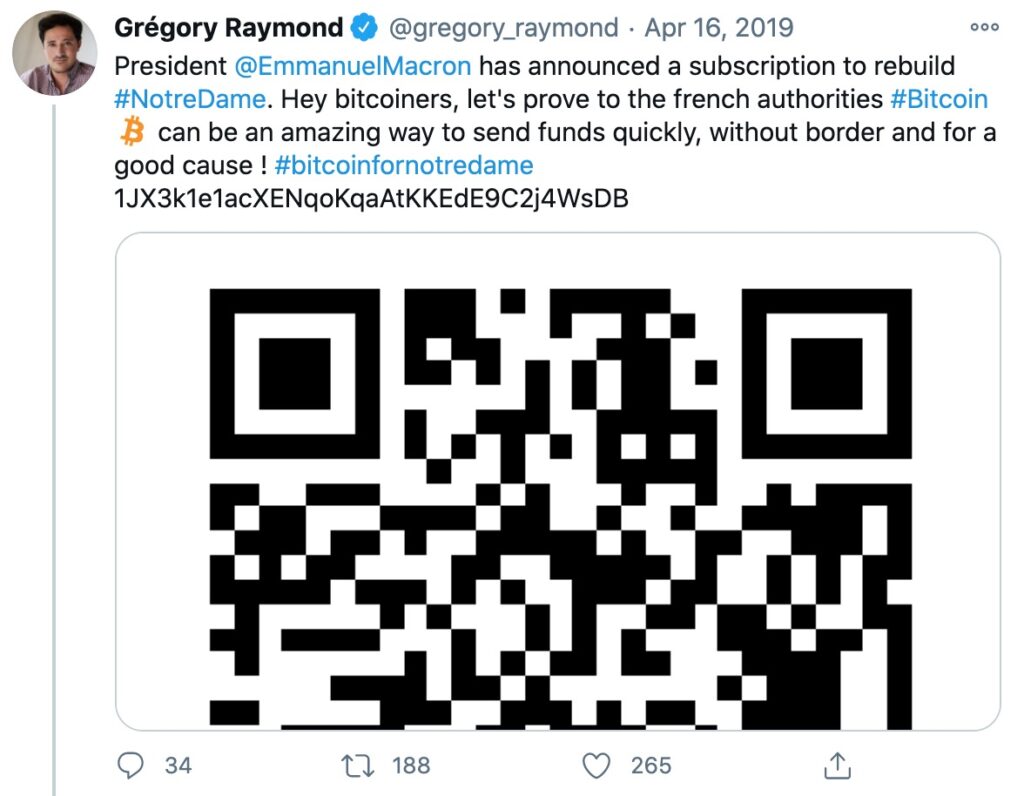Crypto And Charity

This blog post will cover:
- UNICEF
- Pineapple Fund
- How do blockchains and crypto help charities?
- Cryptocurrency donations worldwide
- Are there scams that pretend to be crypto charities?
Nowadays, there is no secret that cryptocurrencies are already actively recognized by society and used for the purchase of services and goods. At the moment, the scope of crypto assets applications is expanding. Commercial and even some government entities have begun to use both blockchain technology and cryptocurrency donations. On donation platforms, people may often notice that along with the usual methods of collecting money (a request to provide details of credit cards), they can find details of crypto wallets.
Charity organizations are often unable to accept endowments from other countries. The cryptocurrency allows receiving donations from all over the world without high fees, delays, and account blocking risks. In this article, we will tell you about some organizations and charities that accept cryptocurrency and support blockchain projects helping others.
For example, old-timers of this sphere - Greenpeace, the Water Promise, United Way - started digital wallets, and the public organization Fidelity Charitable raised $7 million in two years of working with Bitcoin.
Many non-profit organizations save about 30% of donations as bonuses and administrative expenses. Specific information on invoices is not provided. There is a shadow economy. The blockchain also allows to track the movement of funds up to a specific recipient, and this strengthens the reputation of charitable organizations.
UNICEF
The United Nations children's Fund, UNICEF, has established its own UNICEF Cryptocurrency Fund. This community is focused on supporting children and young people around the world. The organization deals with donations made in BTC and ETH and issues grants in these cryptocurrencies. Donations are accepted through the Foundation's national committees in France, the United States, Australia, and New Zealand. UNICEF supports the development of cryptocurrency and blockchain because it is important for them to keep up with the times and modern technologies. A while ago UNICEF reported about major cryptocurrency investments in 8 technology startups in emerging and developing economies. Some of them aimed to support the fight against the effects of the pandemic. This was announced in an official press release. CryptoFund hopes that its financial help will allow these startups to continue working on innovative technologies that can serve to cope with the problems of both local and global levels in the fight against Covid-19.

Pineapple Fund
One of the largest charity crypto projects is the Pineapple Fund. It was created by an anonymous crypto millionaire under the nickname Pine. He is one of the 250 largest Bitcoin holders. In 2017, he transferred 5,057 BTC ($86 million at the exchange rate of that time) to his Fund. In May 2018, he transferred another $55 million. This Foundation has supported about 60 charitable organizations around the world.
There are projects like Charity Mine, Give Bytes, Bail Bloc that allow users to help people without spending any coins. To do this, it is enough to provide the power of the computer for mining. The Fund converts the collected assets into fiat and transfers them to the necessary organizations.
How do blockchains and crypto help charities?
Blockchain offers a few options for helping to raise money for charitable causes, let's have a look at some examples.
NFTs
DeFi protocols
Charity coins
- For example, Clean Water Coin, which raises funds for projects to deliver drinking water to regions suffering from water shortages;
- Pinkcoin, which allows donors to earn income from their investments;
- Impak Сoin, which is intended to raise funds for social impact projects;
- RootProject, which finances projects to combat poverty.
However, such initiatives have not been widely adopted — after all, instead of charity coins, you can donate classical Bitcoin.
Direct donations
There is a variety of crypto non-profits that focus on charity (The Giving Block, Give Crypto, etc) as well as regular crypto companies that make donations. For example, Binance is funding a number of charity activities, and Coinbase pledged to give 1% of profits to good causes.
Cryptocurrency donations worldwide
Of course, there are traditional charities that accept cryptocurrencies. Most of the world's largest non-profit organizations have crypto wallets that allow them to accept anonymous donations: the American Red Cross, Greenpeace, Fidelity Charitable, Medic Mobile, Save the Children, United Way Worldwide, Wikimedia, and thousands of others.
In addition to globally-minded funds that support people, natural resources, and other things, it is worth mentioning that communities also try to help specific people or countries collecting donations for a certain case. For example, when it is necessary to fight against natural disasters or rescue affected objects and art pieces. Among recent events, the support for the fight against fires in Australia should be noted. Board member at Blockchain Australia and founder of the YouTube channel Nugget's News, Alex Saunders, wanted to "show the world the power of Bitcoin" and encouraged his subscribers to donate and use the leading digital currency.
The fire in Notre Dame left few people indifferent: companies, governments, and individuals are donating hundreds of millions of dollars to restore a unique historical monument, and the Bitcoin community has not been left out. Gregory Raymond, the anchorman of French podcasts about Bitcoin, organized the collecting of cryptocurrency donations. Funds should be transferred to the restoration of the cathedral.

To sum up, we would like to say that the growing popularity of crypto donations may indicate that charities understand the prospects of a new channel for attracting money. However, the speed of the new technologies introduction is limited by several factors: the volatility of cryptocurrencies, legal uncertainty, lack of awareness about cryptocurrencies among a wide range of donors, and others.
Are there scams that pretend to be crypto charities?
Unfortunately, not all initiatives are actually bringing positive changes. There are scammers who create social media accounts for fake charities and use the decentralized and anonymous nature of blockchain. Other projects raise funds and then disappear.
For instance, a scam was discovered on Reddit where fraudsters promised to help children in Venezuela. However, other users managed to identify the photos that the account used which belonged to a different organization.
To keep safe from scammers, it is a good idea to always check the reviews of the organization you would like to help and stick to the non-profits with good reputations.
If you want to contribute to an organization, first of all, you should get acquainted with it, find out its history, how positively it has established itself, and if it has a good reputation. In some cases, if you have any doubts, you may need to contact the organization's representatives directly to get more information about money transfers. Remember to check bank details and details of official websites so that you don't run into scammers.

